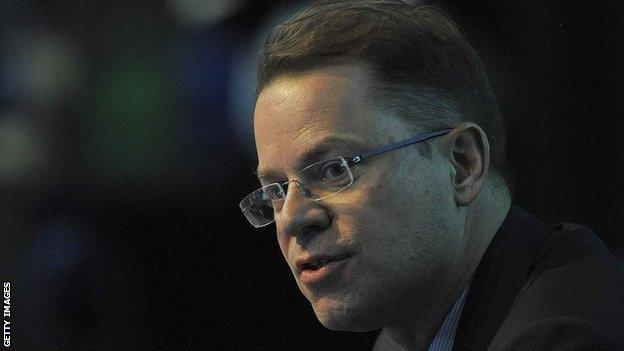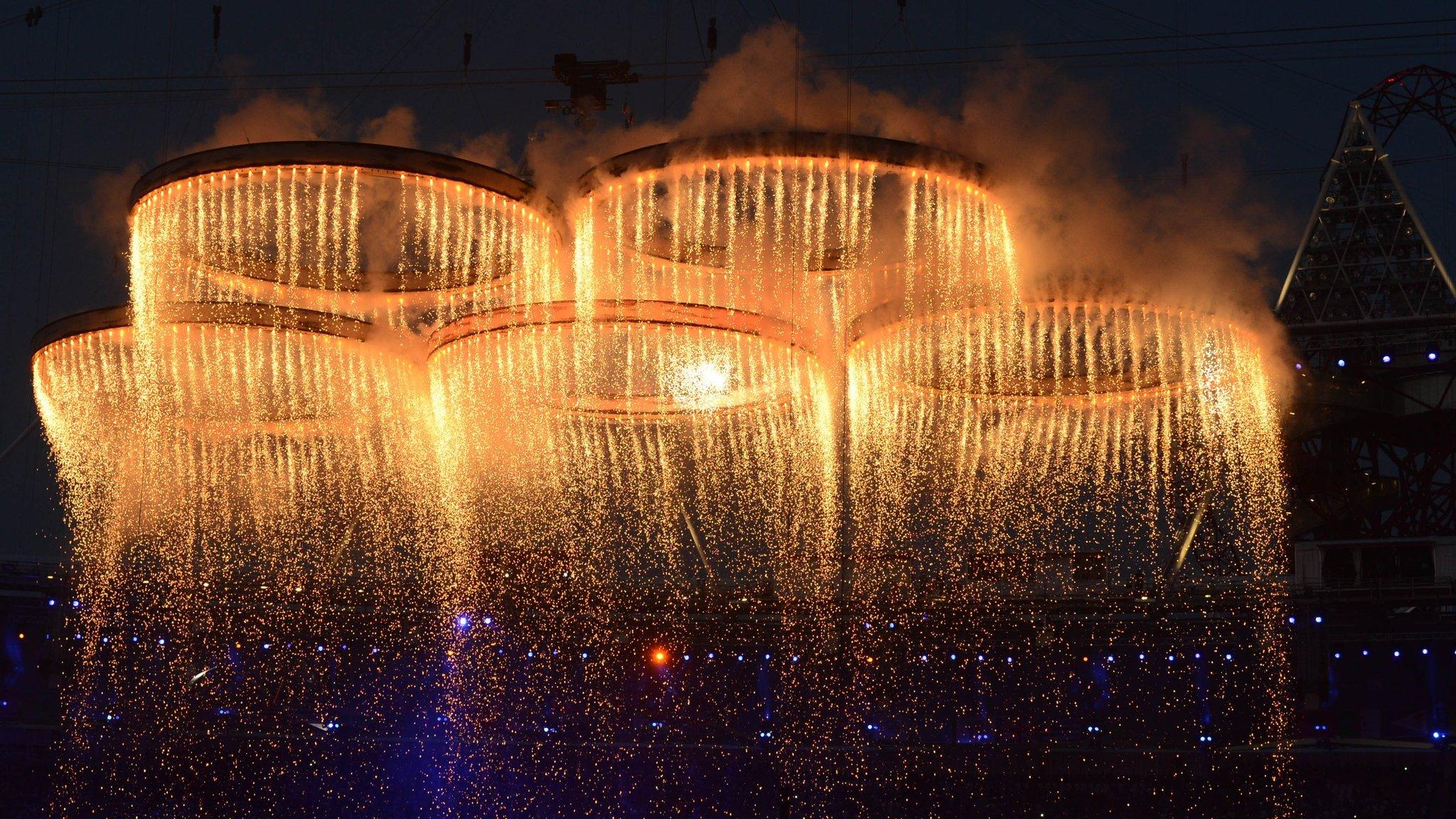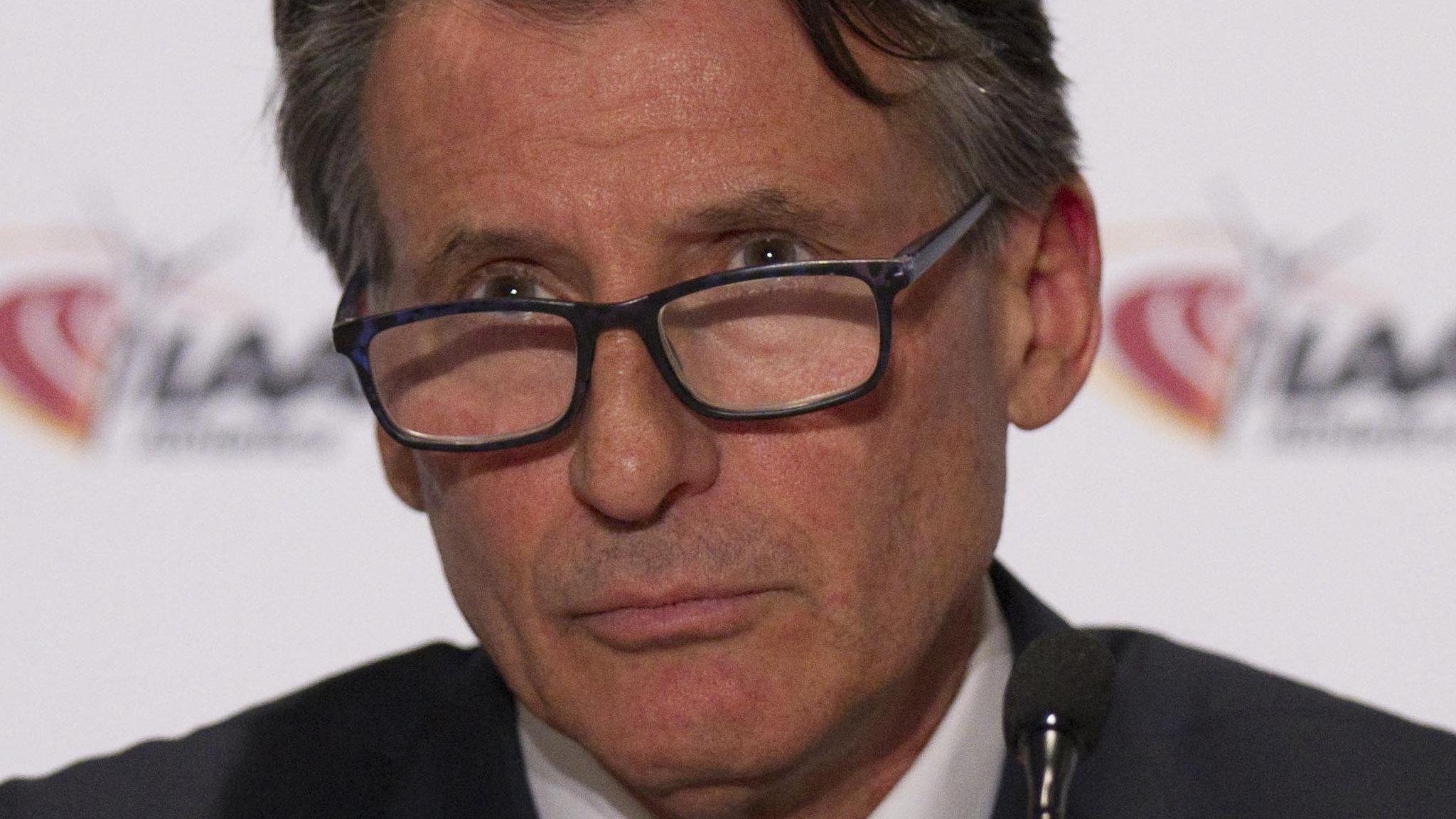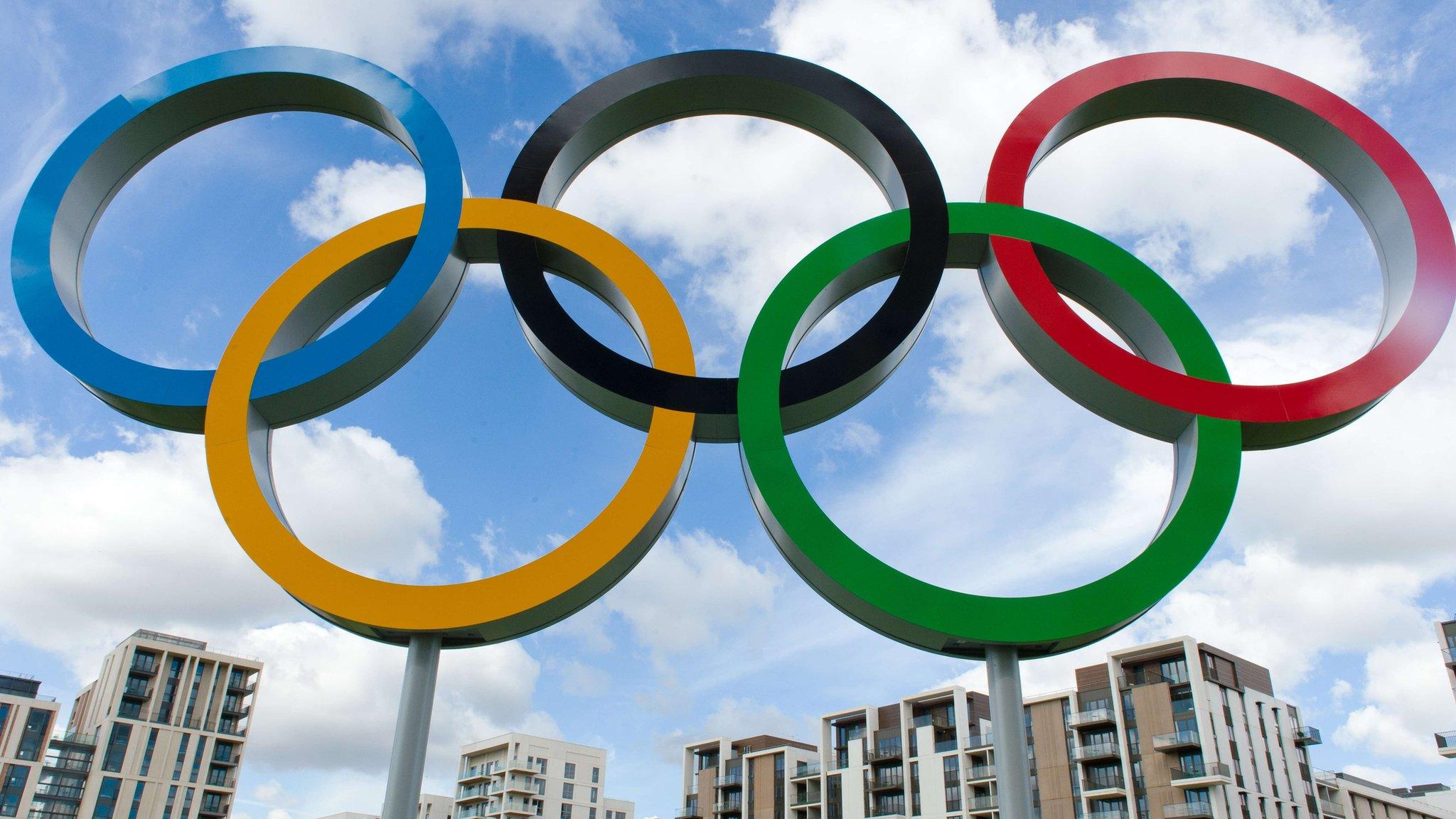Russia doping reforms not happening quickly enough, says Wada chief
- Published

Wada director general Olivier Niggli also told a Tackling Doping in Sport conference that sport needed more whistleblowers
Russia's anti-doping reforms are not happening quickly enough, says World Anti-Doping Agency director general Olivier Niggli.
Last year's Wada-commissioned McLaren report claimed more than 1,000 Russians benefited from a state-sponsored doping programme between 2011 and 2015.
Russia's sport leaders have promised to improve the country's record on doping.
"It's not happening at the speed I would have liked to see but it is happening," Niggli said.
Speaking to BBC sports editor Dan Roan at a Tackling Doping in Sport conference, he added it was too early to say whether Russians will be allowed to compete at the 2018 Winter Olympics in Pyeongchang.
Several sports federations, including athletics' governing body the International Association of Athletics Federations (IAAF), have banned Russian athletes from international competition until the country's anti-doping work has met requirements.
That came after Wada called for a blanket ban on Russian competitors when details of the state-sponsored programme first emerged.
However, the International Olympic Committee (IOC) - in contrast to the International Paralympic Committee - opted not to enforce a total ban on Russia.
When asked about next year's Winter Olympics, Niggli said: "We are working with them to see if things can be put into place and a credible system be reinstated in Russia in the coming months. We will see where they are when we get closer to the Games. They still have a number of months to do the right thing. The ball is in their camp, they know what they have to do."
Russia says it has implemented a series of changes to address the "roadmap" laid out by Wada that will see it return to competition.
Russian President Vladimir Putin said Russia's own system "didn't work" and it should acknowledge its failures - though he continued to deny any state-sponsored programme of systematic cheating took place.
Both Wada and IAAF president Lord Coe were among those saying they were "encouraged" by the president's statement, and the IAAF believes Russians could be back competing by the end of the year.
Meanwhile, Niggli told those at the conference that sport's anti-doping authorities needed more whistleblowers to help them identify drug cheats.
He also revealed Wada was exploring a complete ban on corticosteroids. Athletes can use the anti-inflammatory medicines out of competition and can even take them in competition if they can prove a medical need, called a 'therapeutic use exemption' (TUE).
Britain's most successful Olympian, cyclist Sir Bradley Wiggins, has faced questions over his use of a corticosteroid in competition after hackers revealed medical records last summer.
Wiggins' TUEs were approved by British authorities and cycling's world governing body the UCI, and there is no suggestion he has broken any rules.
- Published9 December 2016

- Published2 March 2017

- Published18 July 2016
